- Home
- /
- old Accessibility Services
Welcome to Accessibility Services
Accessibility Services staff work to assist all qualified students with disabilities at SUNY Niagara in the pursuit of their educational objectives. Our goal is to support and empower you in your quest to become your own self-advocate.
The mission of Accessibility Services at SUNY Niagara is to provide reasonable academic adjustments and related services to qualified students with disabilities in the most inclusive setting possible and to enhance student independence while promoting self-advocacy in accordance with Section 504 of the Rehabilitation Act and the American with Disabilities Amendments Act.
Accessibility Services is a National Voter Registration Act (NVRA) voter registration site. Please go to our voter registration page (https://www.niagaracc.suny.edu/voting) for more information or to register to vote.
To schedule an appointment or to request more information contact us by email at accessibility@niagaracc.suny.edu or by phone at 716 614-6285.
Academic Adjustments
A reasonable academic adjustment is provision of an auxiliary aid, or modification to the course or program that will allow access to the educational program, material, activity, or degree. Some examples of reasonable academic adjustments include:
-
- Making existing facilities readily accessible to, and usable by, persons with disabilities
- Acquisition or modification of equipment or devices
- Appropriate adjustments or modification of tests or testing policies
- Provision of text-to-speech software, note takers, and/or sign language interpreters
- Provision of alternate text formats
Once academic adjustments have been officially granted by the Accessibility Services Program Administrator, students MUST present faculty/instructors with letters of academic adjustment (LOA) prior to receiving any academic adjustments. Students are encouraged to meet with their professors during office hours (which should be listed on course syllabi) to discuss how the student’s academic adjustments will be granted in each course.
Note: If you have any issues with the implementation of your granted academic adjustment(s), please contact the Program Administrator, Alissa Cummings immediately.
Accessibility
Physical Accessibility
Accessibility Services is committed to equal access programs, services, and physical facilities to students with disabilities. The architectural design of the College provides a barrier-free environment. Most of the campus is street level, and there are ramps and elevators where necessary. There are also accessible restrooms, drinking fountains, and telephones. Existing structures on campus have been modified and are continually being updated with regard to accessibility.
Program/Event Accessibility
All College programs, activities and services must be accessible to individual with disabilities. If you have a disability and need assistance, auxiliary aids or services to participate, please contact Accessibility Services (A-167) to request academic adjustments (such as closed captioning or interpreters) at least one week prior to the event or program.
Website Accessibility
The SUNY Niagara website meets and exceeds Web Content Accessibility Guidelines (WCAG). The site is designed to provide a rich experience for users of traditional browsers as well as assistive browsing technologies and mobile devices. Pages in the site have been tested against a variety of Web accessibility guidelines including:
- Section 508
- Web Content Accessibility Guidelines (WCAG) Priority 1, 2, 3
- Web Accessibility Initiative (WAI)
If you have Web accessibility questions, comments, or suggestions concerning the website, please email Public Relations or accessibility@niagaracc.suny.edu.
ADA
The mission of promoting access across the campus is fulfilled by the Career & Transitional Services Director, who ensures that SUNY Niagara adheres to legal mandates stipulated under Section 504 of the Rehabilitation Act and the Americans with Disabilities Amendments Act of 2008. The intent of these laws is to ensure that individuals with disabilities at SUNY Niagara have the same access to programs and services as any other student. It should be noted that the purpose of these laws is not to give students with disabilities an unfair advantage, but rather to eliminate barriers – physical, attitudinal, or programmatic — that would otherwise deny students with disabilities equal access.
Inquiries regarding application of and compliance with Section 504 of the Rehabilitation Act of 1973 or the Americans with Disabilities Act of 1990 may be directed to the Career & Transitional Services Director. Any information pertaining to disabilities will be confidential and will not affect the student’s admission to the College.
Forms
The forms linked below are made available online in an effort to make information accessible to all students:
- Documentation Guidelines
- Release/Request Information Form
- Psychological Services Referral Listing
- Testing Center Reservation Directions Instructor
- Testing Center Reservation Directions for Students
- Testing Center Rules and Standards
- Adaptive Technology Contract
- Alternative Textbook Request Form
- Service Animal Policy
Grievance/Complaint Procedures
Procedures are applicable to all student complaints alleging discrimination, harassment, and retaliation on the basis of disability. Please refer to our Policies and Procedure Manual for a complete listing of our grievance procedures.
Individuals who feel they have been denied academic adjustments and/or have been discriminated against on the basis of disability may contact the Accessibility Services Coordinator and the administrative head of the department where the discrimination occurred in an effort to resolve the complaint informally. The responsible official will attempt to resolve the matter within 30 days of receiving the complaint.
Any student that believes that he/she is a victim of discrimination, harassment, and/or retaliation may address his or her concerns by seeking informal resolution and/or filing an official complaint.
Services
Students should contact and schedule an appointment with the Accessibility Services Coordinator as soon as they decide to attend SUNY Niagara. The Coordinator will assist students with academic support and reasonable accommodations.
Identification
In this meeting the student should identify themselves as having a disability and should provide Accessibility Services with diagnostic testing and/or medical assessments from a qualified professional.
Documentation
The Coordinator will then review the documentation and determine if it is sufficient. Documentation should include a diagnosis of an impairment that is substantially limiting to one or more major life activities. Disability documentation should be printed on professional letterhead with the name, title/credentials, address, phone number of the certifying professional and the date of the evaluation(s).
The documentation should also include a listing of all diagnostics tests and assessments used including the results of the diagnostic procedures, the examiner’s narrative interpretation, and summary of test and subtest scores. Data should logically reflect a substantial limitation and relate to the specific functional limitations that necessitate academic adjustment. The expected progression or stability of the disability, if relevant, should also be included. Documentation of a disability must be written by a medical/professional in the related field of disability.
Confidentiality of Student Records
Documentation is housed in a locked cabinet in the Accessibility Services office and is not released without the student’s written consent. For more information on confidentiality of records, please refer to our Policies and Procedure Manual.
Training/Resources
Accessibility Services staff at SUNY Niagara maintain up-to-date training with major organizations involved with the rights of students with disabilities in higher education. Accessibility Services is a member of ATHEN, AHEAD, and NYS DSC. Staff also maintains training through participation in Assistive Technology Industry Association (ATIA), Accessing Higher Ground (AHG), and AHEAD conferences.
These organizations are great resources for students and community members as well, please visit the following websites for more information.
| Organization Name | Website URL |
|---|---|
| Accessing Higher Ground (AHG) | http://accessinghigherground.org/ |
| Access Technology Higher Education Network (ATHEN) | https://www.athenpro.org/about |
| Assistive Technology Industry Association (ATiA) | http://www.atia.org |
| Association on Higher Education and Disability (AHEAD) | https://www.ahead.org/students-parents/transitions |
| New York State Disability Services Council (NYS DSC) | http://www.nysdsc.org/ |
Transition
If you have an IEP, the law (IDEA 2004) requires high schools to create a transition plan for every student by the age of 16. If you want to go to college, that should be clearly reflected and your annual plan should address your needs for appropriate coursework, understanding of your disability, development of self-advocacy skills, and development of independent living skills. Be involved in the creation of those plans; discuss them with your parents and teachers as you will be the main advocate for yourself in college.
When considering the strategies and academic adjustments you will utilize at the post-secondary level, don’t rely on what you have used in the past. What is expected of you in terms of independent reading and writing and the volume of work expected will be much greater in college than it was in high school. Your strategies and appropriate academic adjustments will probably also need to change.
Connect with appropriate adult services agencies, e.g. ACCES-VR, CBVH, and Learning Disabilities Association. Learn about adaptive technology, both hardware and software, that may help you work independently.
If you are a veteran, please also contact Veteran Services in (B-103) 716-614-6873 for transition questions and assistance with issues such as the admissions process and available financial support from the VA.
SUNY Niagara’s Academic Center for Excellence coordinates free tutoring for ALL students on campus (tutoring is not considered an academic adjustment). For more information, please contact the Academic Center for Excellence at 716-614-6724.
If you have a learning disability related to reading comprehension, the Academic Center for Excellence offers elective and remedial courses on reading, study strategies, and critical thinking. The College also has a site license for Read and Write Gold 10. You may request a copy of this literacy program from the Adaptive Technology Specialist.
MOST IMPORTANT: You can’t make good decisions without good information. So ask questions and find out what you need to know!
The resources linked below are valuable resources to help make the smoothest transition to college possible.
Contact
Accessibility Services
Phone: 716-614-6285
Email: accessibility@niagaracc.suny.edu

